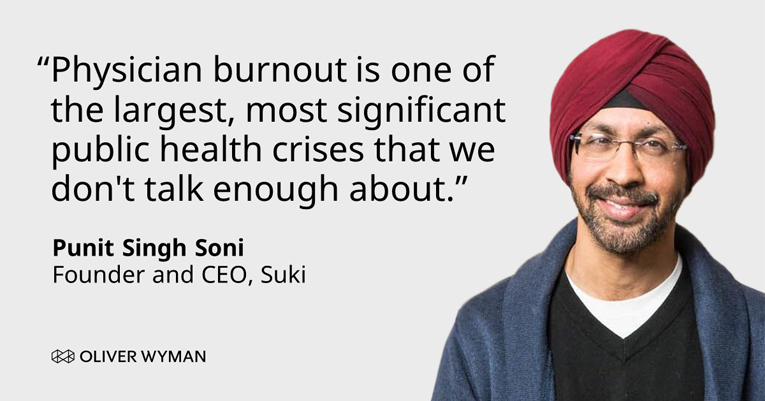Many healthcare provider organizations are using medical scribe programs to improve consumers’ levels of physician satisfaction. And artificial intelligence (AI) has great potential to transform this space. This is especially the case regarding remote medical assistants and transcription services, for example. But to what extent can machine learning and AI – terms that are perhaps rife with hype and misinterpretation regarding what’s truly possible – lessen the physician burden and streamline provider operations?
There’s no simple answer. Or, perhaps no simple question. Have you ever tried to ask a voice assistant like Alexa or Siri, for instance, a question you thought was simple enough and the algorithms struggled to understand what you meant? On this note, adoption challenges to AI medical scribe work are numerous. For example, a typical patient-physician conversation may be difficult to analyze and process with AI tools because of nuanced interpretation needed to decipher the intricacies of human speech. If a patient, for instance, casually mentions she plans to move to Arizona, but it’s not relevant to her medical documentation process, how can the technology understand this sentence perhaps doesn’t need to be documented? And what strategies can help ensure the scribe process is seamless so conversations are precisely captured and therefore better leveraged by health providers?
In this episode of the Oliver Wyman Health Podcast, Tom Robinson, a Partner in Oliver Wyman’s Health and Life Sciences practice, chats with Punit Singh Soni, Founder and Chief Executive Officer of Suki, about the future of AI and medical scribes. They talk about how Suki – a startup that uses AI-powered, voice-enabled digital physician assistants to shorten the time physicians spend documenting – aims to ultimately strengthen greater physician-patient rapport. They also discuss how to better automatically translate clinical documents into accurately summarized conversations, the shortfalls many medical scribing companies face in terms of how their business models are set up, and why healthcare is truly ripe for disruption in the AI space.
Listen to the Podcast:
Memorable Moments From This Episode:
- Punit on how Suki is helping transform administrative burden: “We are completely changing the kinds of burden [providers face]. Instead of [physicians] having to worry about the actual words being printed, and if they’re exactly right or not, now they just have to think, ‘What is it that I wanted to say? What exactly was the comment I wanted to make to this assistant of mine?’”
- Punit on why the healthcare industry needs to reconsider how it builds new physician-facing technologies: “One of the mistakes the general healthcare space made is they think doctors have to be trained to use technology in one particular way in one particular system. Doctors have a lot of styles. Every doctor is unique in the way they practice. … The goal is, therefore, to make a product that’s immediately malleable to a doctor’s style of practice.”
- Punit on why he decided to specifically build an AI-focused healthcare technology startup: "I believe that the greatest technology company that will ever be built is going to be in healthcare, and I believe Suki has a shot at it. I believe that the starting point of anything built in this space is going to be at the cusp of a powerful, important constituency of doctors, and the burnout issue that they are facing."
- Punit on the importance of data: “Machine learning, deep learning, AI technologies, and even general SaaS (Software as a Service) technologies require a lot of data to actually start solving problems. You can solve pretty much every single administrative or healthcare tech stack problem in the market if you actually had access to the data.”










